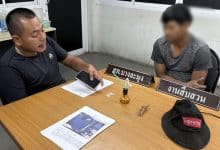Thai government’s plan to open drug rehab centres in army barracks raises concerns

Civil society groups are expressing apprehension regarding the Thai government’s decision to establish drug rehabilitation centres, known as Rakjai centres, in 52 army barracks across the country.
Prime Minister Srettha Thavisin highlighted the nation’s drug issues on social media and outlined the government’s plan to utilise military premises for drug rehabilitation programmes. Defence Minister Sutin Klungsang has since been involved in discussions concerning this initiative, which will initially aid 4,414 people with drug addiction in 30 provinces through 60, 90 or 120-day treatment schemes.
However, this approach to drug rehabilitation, employing military-style methods, has raised concerns about potential abuse. Thissadee Sawangying, director of the Health and Opportunity Network, questioned whether the government’s initiative would replicate the regimes of the existing military-run rehab centre, the Civil Development Center. This centre, which has long been in operation, accommodates individuals convicted of illegal drug use and subjects them to disciplinary training under military supervision.
Thissadee voiced concerns about the mistreatment of individuals suffering from mental illness and transgender women at the centre. She cited accounts of transgender women being treated as servants by male inmates and being poorly treated by the centre’s staff. She further questioned whether PM Srettha could guarantee the presence of qualified personnel to deal with the complexities of drug use in Thailand, reported Bangkok Post.
In addition to calling for transparency and civil sector oversight, Thissadee emphasised that enrolment into the programme should be voluntary, adhering to universal harm reduction values and human rights principles. She further argued against the military’s involvement in dealing with drug use.
“What the PM needs to do is increase the capacity of the medical sector in drug treatments, such as their knowledge, staff and working closely with civil society, not militarising drug treatments.”
Gloria Lai, regional director of the International Drug Policy Consortium, also expressed concerns over the government’s decision, highlighting Thailand’s history of violence and abuse related to drugs. Lai argued that the military, lacking health expertise, should not be involved in public health services. She further stressed the need for strong justification if the military were to take on more responsibilities, particularly in the provision of drug treatment services.
Lai praised Thailand’s harm reduction efforts under its new Narcotic Codes but expressed concern over the continued imposition of compulsory treatment for people who use drugs. She argued for a voluntary system that allows individuals the freedom to choose their course of treatment, comparing it to the choice one makes in seeking health services for conditions such as diabetes or high blood pressure.
Lai suggested that public safety campaigns could discourage drug use without the need for compulsion, in the same way they discourage excessive smoking or drinking.
In related news, the Public Health Ministry successfully established 42 Mini Thanyarak drug rehabilitation centres across 27 provinces as part of the One Province, One Mini Thanyarak campaign. This nationwide initiative aimed to enhance accessibility and treatment standards for individuals dealing with drug addiction by the end of 2023.
Latest Thailand News
Follow The Thaiger on Google News:


























